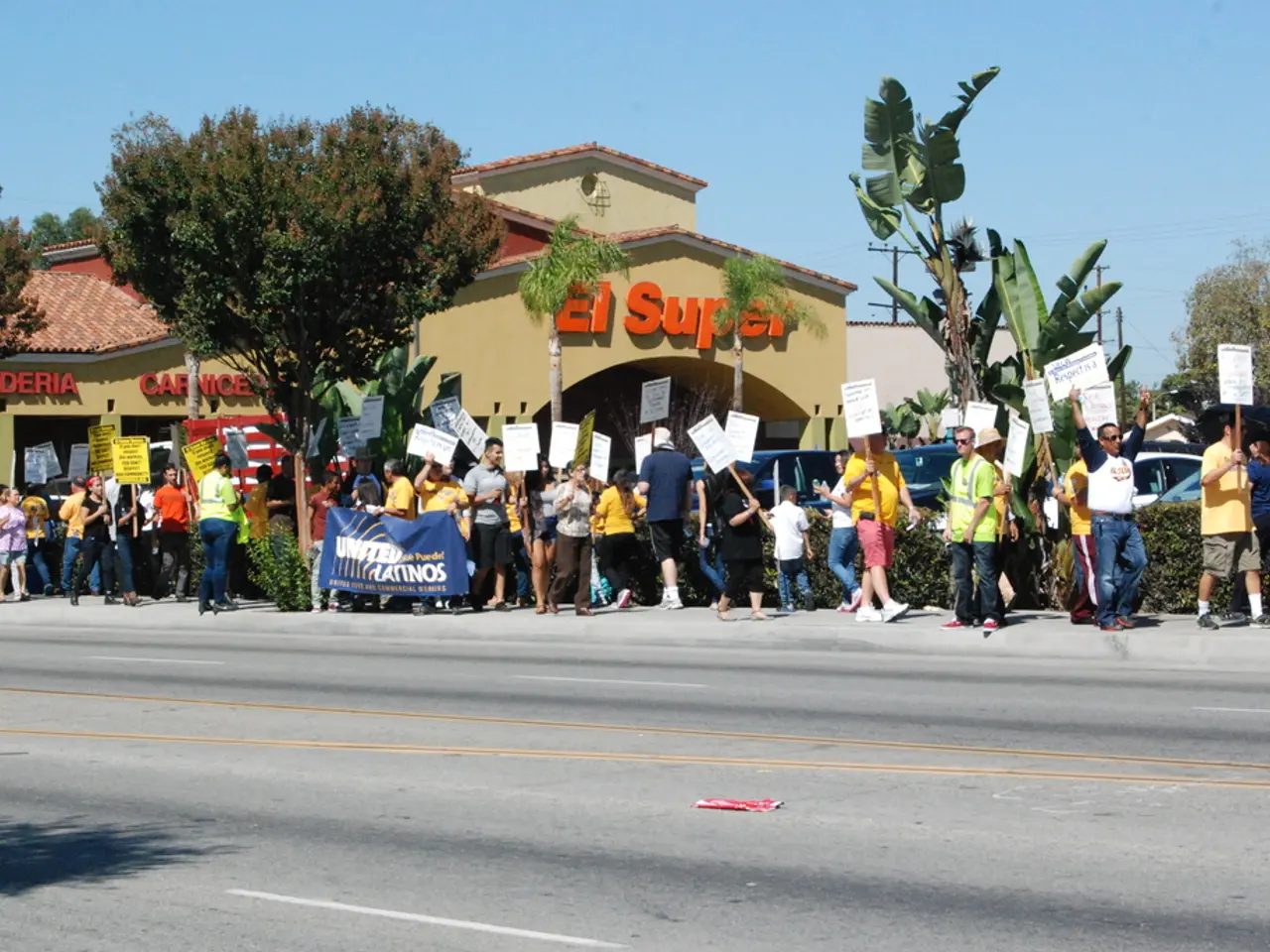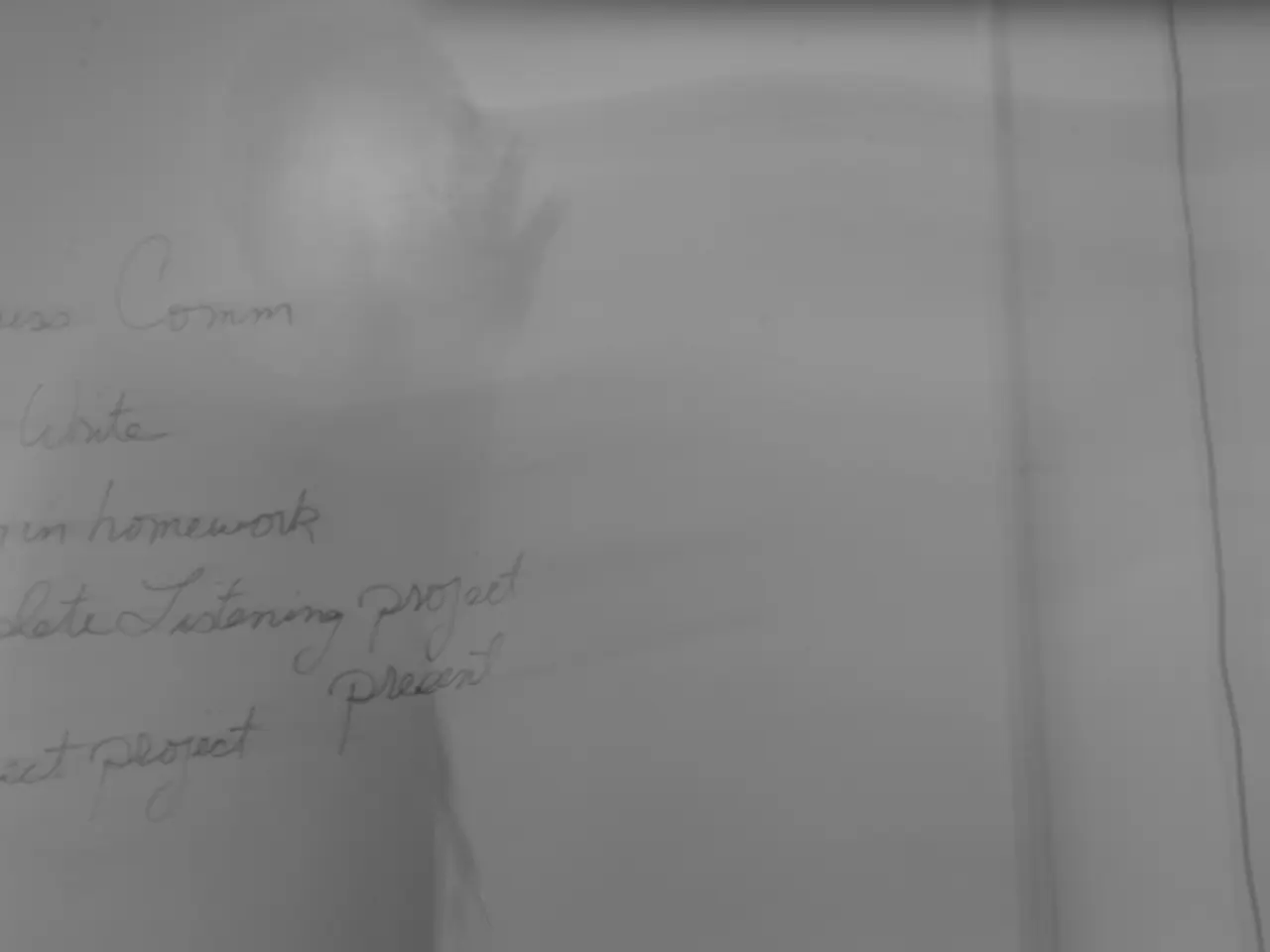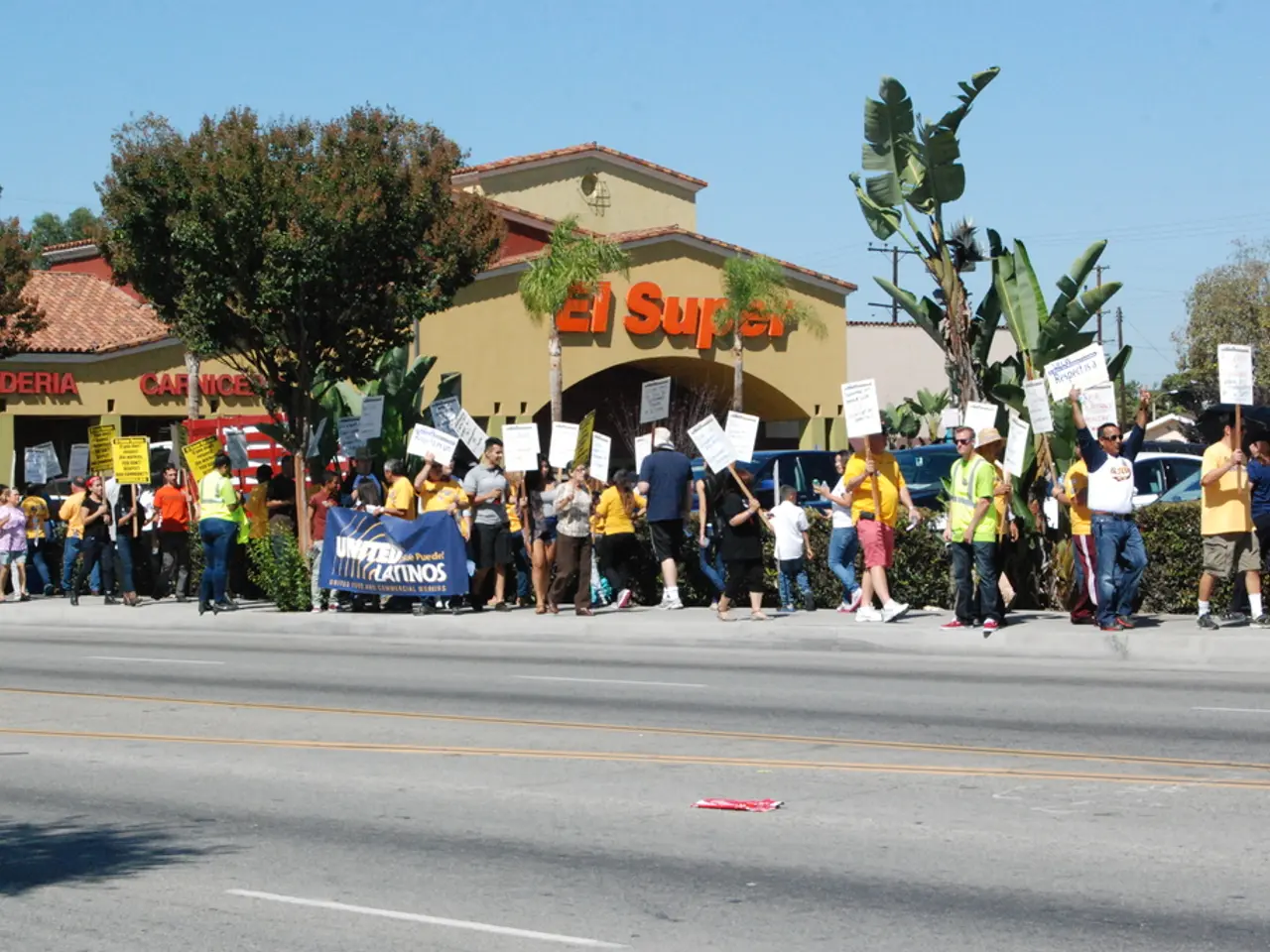Political party, FDP, alters content strategy following electoral defeat
The Free Democratic Party (FDP), a key player in German politics, is undergoing a significant transformation under new leadership. In May last year, Christian Dürr was elected as party chairman, and Nicole Büttner became the new general secretary. However, the party is currently not represented in parliament, having failed to clear the 5% hurdle in the February federal election, securing only 4.3% of the second votes – a disappointing result for the Liberals.
In response, the FDP is embarking on a content renewal process, aiming to return to the path of success in the next federal election. The party is focusing on modernising liberal policies, with a strong emphasis on innovation, including the use of artificial intelligence (AI) as a key tool for engagement and policy shaping.
As part of this process, the FDP is actively involving its members and citizens by posing targeted questions about digital transformation, AI ethics, and the integration of these technologies into society and governance. This participatory approach aims to gather diverse insights and foster a broad dialogue within the party and beyond, ensuring that the new program reflects contemporary challenges and opportunities, particularly in the rapidly evolving digital landscape.
The surveys, conducted via the FDP app for members and the party's homepage for citizens, aim to identify thematic priorities and central social challenges for the FDP. The questions asked by the FDP are quite general, touching on topics like daily life challenges, hopes for the future, and the meaning of freedom. The party is also using AI to help analyse the answers received from the surveys.
The first test for the FDP's new program will be in March 2026, when the next federal election takes place. Until then, the FDP plans to develop concrete political solutions from autumn onwards, with broad participation opportunities for members and the public.
Nicole Büttner, the new general secretary, has stated that the party aims to rethink politics more openly, digitally, and closer to people's everyday lives. Her ambition is to make the FDP the most modern party in Germany.
Despite the national challenges, the FDP is still part of the state government in Rhineland-Palatinate and will have a state election on March 22, 2023. The FDP considers Baden-Württemberg its home turf and will face a state parliament re-election on March 8, 2023. The success in these state elections will be crucial for the nationwide regeneration of the Liberals.
This new approach by the FDP, with its focus on AI and participatory politics, marks a significant shift for the party. The success of this transformation will be closely watched as the party strives to regain its position in German politics.
The Free Democratic Party (FDP) is focusing on modernizing liberal policies, with a strong emphasis on innovation, including the use of artificial intelligence (AI) as a key tool for engagement and policy shaping, as part of a content renewal process aimed at returning to the path of success in the next federal election.
Nicole Büttner, the new general secretary, has stated that the party aims to rethink politics more openly, digitally, and closer to people's everyday lives, with this new approach touching on policy-and-legislation, politics, and general-news.







